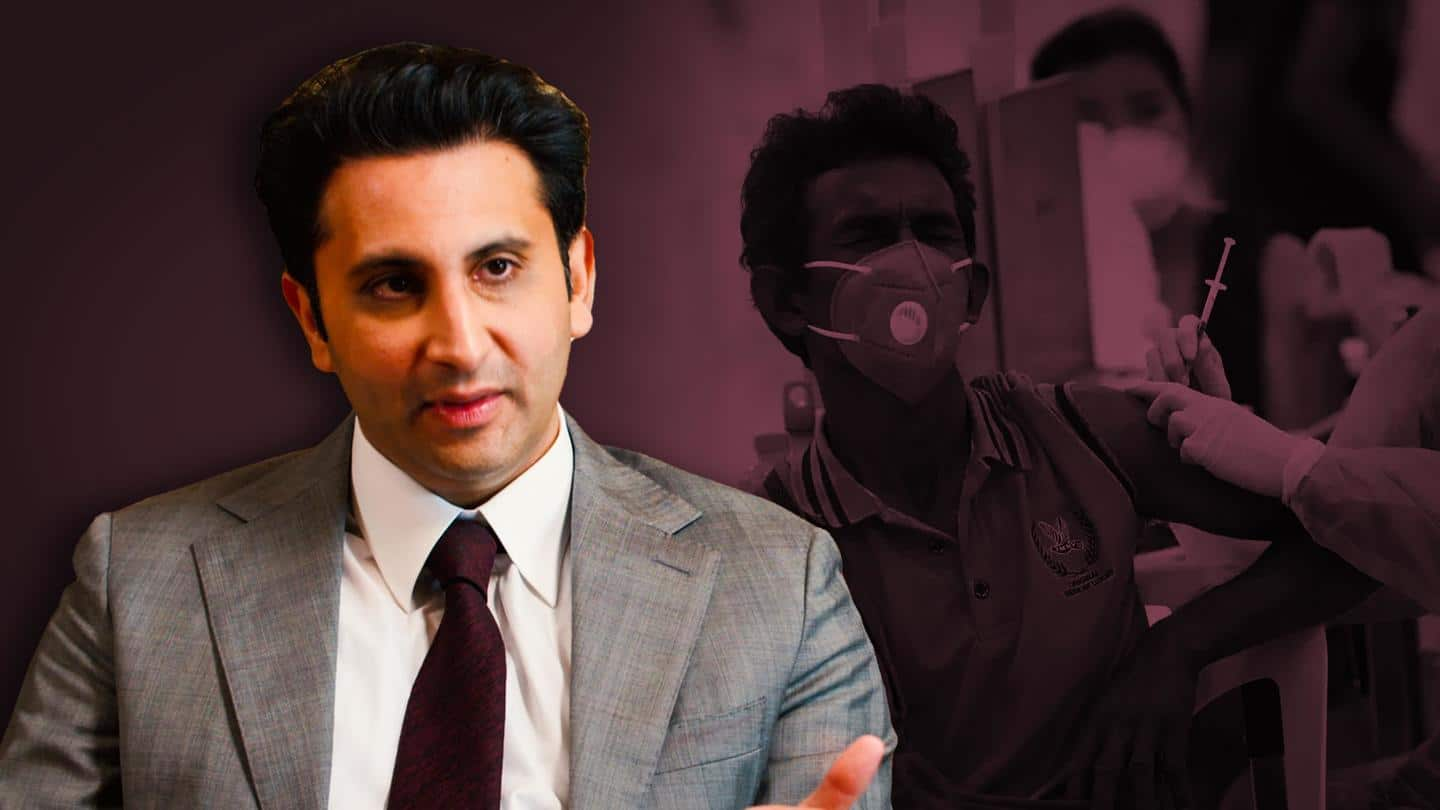
Only faster COVID-19 vaccinations can end pandemic: Adar Poonawalla
What's the story
Billions need to be vaccinated at a faster rate to reach the end of the COVID-19 pandemic, said Adar Poonawalla, CEO of the Serum Institute of India (SII), which manufactures the COVID-19 vaccine Covishield.
"The COVID-19 vaccine supply is no longer a constraint...and we are in a much better place than last year to meet demands," Poonawalla said.
Context
Why does this story matter?
Poonawalla's comments came during a session on "Meeting the Challenge of Vaccine Equity" organized by the World Economic Forum (WEF) on Tuesday.
The other speakers included Mike Ryan of the World Health Organization; Gabriela Bucher, Executive Director Oxfam; Seth Berkley, CEO of the Vaccine Alliance Gavi.
The panelists discussed the rapid development of COVID-19 vaccines and the challenges faced in their distribution.
Details
What did Poonawalla say?
In his address, Poonawalla said countries should come together for a clear standard for vaccine trials and introduce a smooth framework for its approval and distribution.
The governments should also come to agreements on export restrictions to help deal better with the pandemic, he added.
He further called for a centralized regulatory body for vaccine certificates to make travel more convenient during the pandemic.
Vaccine supply
Poonawalla commits to support global vaccine equity
Poonawalla also expressed his commitment to support global vaccine equity through programs such as COVAX to ensure larger distribution of vaccines.
He also informed his company is ready to supply billion-plus doses in the first quarter or two combined through COVAX to the African continent.
He said wherever there is vaccine inequality in the African continent, his company will meet the gap.
Session
WHO stresses role of vaccines
Speaking during the session, Michael Ryan—the executive director of WHO's health emergencies program—had also said, "There is no way to end this pandemic without vaccines."
The event's panelists hailed the rapid development of vaccines as a scientific achievement.
However, the panelists acknowledged the health, economic, and geopolitical concerns linked to the failure to equally distribute vaccines.